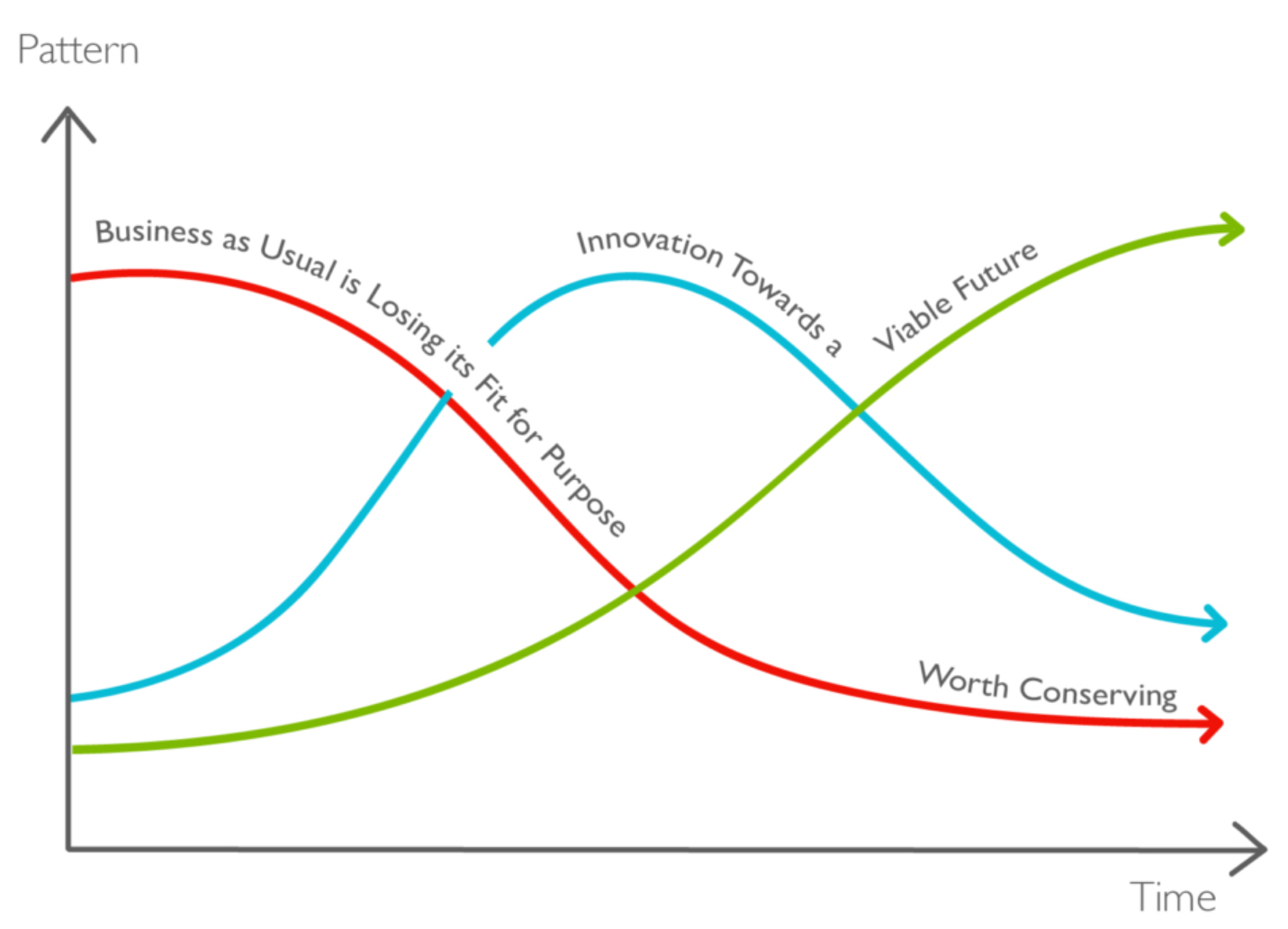
The answer is „AND“
Alfred Krappel
Frank Sprenger gave us another one of his dreaded weekend assignments today.
The question this time was to read the linked article above and to discuss how we can save our habitat: with a mindset/lifestyle shift or with high tech solutions.
Here is my assignment dear Frank:
The answer is — no, not 42 — the answer is „AND“. We need both a mindset/lifestyle shift AND the power of our technical ingenuity. Focus and reliance on the latter alone will most likely lead to bitter disappointment and human extinction potentially. The key variable, and why I make this gloomy claim, is — as the article rightly states — time. In oder to keep the temperature rise close to the 1,5°C limit, the majority of the work needs to be done in the next 10 years. This is not a lot of time. It is a blink of the eye. It is nothing.
How can we do this? I see 3 main steps:
- Look the facts in the eye and take the bull at the horn. Accepting that we have a problem – a dreadful problem – is step 1. If you should not have reached that conclusion yet, you may want to ask yourself „why is that?“ Is it that the problem just has not reached your consciousness yet (was my problem up until 2 years ago – thanks Greta), is it: ignorance, fear, opportunism, insecurity, no time to dig in deeper, etc.? – there is a slew of potential reasons, some overlapping, others totally understandable – who is, for example, not afraid of the complexity of the problem and the potential consequences?
- Avoid falling prey to „arrogance of one’s own profession“ – thanks to Thomas Theuring and Gerrit Beine for using this term (unknowingly of each other). Gerrit is talking and writing passionately about the arrogance of IT experts (btw, a highly relevant topic in digital transformation projects). Being an IT expert himself, he is allowed to do that :-) Thomas and I use the term when we talk about „integrative consulting“, where we see a similar phenomenon amongst consulting specialists. This issue is deeply rooted in our culture and the result of a — sorry to say — inadequate education system. Having a hammer doesn‘t mean that everything is a nail. The only solution I can think of: let‘s bring our expertise and perspectives together and let‘s look systemically at the problem. We will differ, that is not an issue, that is the point! If we are not differing, then it is a either a no-brainer or we are caught in our professional or social media bubbles. Getting to decisions, when we differ, is not an easy task – but it can be done, we know how to do that.
- Skillfull apply a systemic view and craft a systemic plan. This can only be done together and in a cross-functional matter, the handling of the corona-crisis shows this noticeably. And it is the job of politicians to orchestrate this. It is not their job to know how to do it, but it is their job to bring the required experts together. The 3 horizons model from Bill Sharpe and Anthony Hodgsons allows to have a structured and truthful discussion amongst stakeholders with different views and different interests. What must be done, what must die immediately? What do we have to keep alive for a while, because shutting it down right away will have terrible consequences somewhere else. Which technologies do we bet on and when do we expect impact? What are potential negative consequences?
There are no simple answers. Dilemmas will be everywhere, but we must avoid becoming paralyzed by them. Again, we have techniques and methods for that (dilemma navigation, polarity map – see also here). The original question, whether we should act and adjust our mindset/lifestyle right away or continue to focus on technology innovation in the future, is not a difficult dilemma. As a matter of fact, it probably is more a choice, than a dilemma: we need to react immediately. Technology innovation pathways should be pursued, but not as part of a procrastination strategy. If technology innovation later should allow to shift our lifestyles back again, we can reconsider. The question will be, whether we want to. Maybe we will like some of our lifestyle changes so much, that we do not want to go back. I have a hunch, that this might be the case.
I love your weekend assignments Frank — keep them coming :-)

